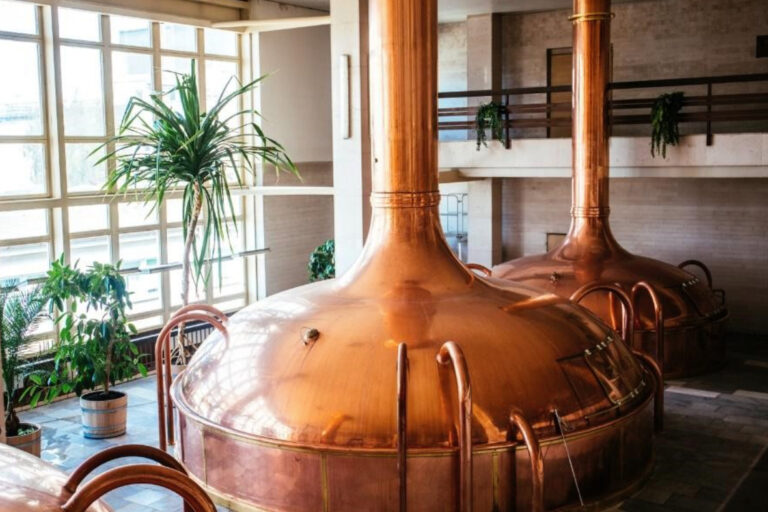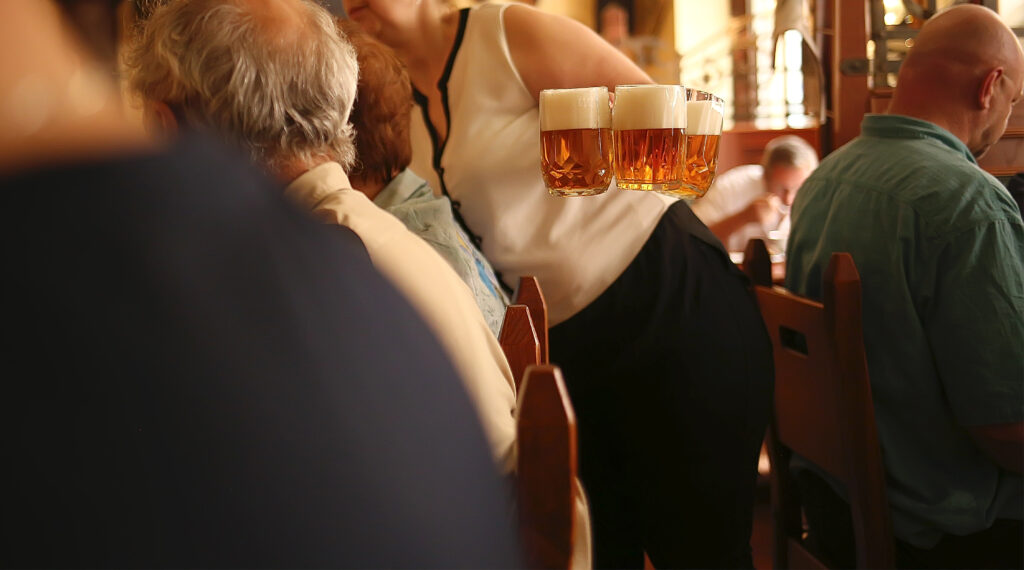About beer culture
Czech beer culture is a deeply rooted cultural phenomenon that has evolved over the centuries around traditional Czech beer, and has a significant position both in the local context and on a global scale. This culture goes beyond the beer itself; it also includes preparation and serving methods, specific tasting methods, consumption habits and social aspects such as time-sharing and uniting socially diverse groups. These characteristic elements make Czech beer culture specific and unique.
Areas of beer culture
Traditional production technologies
For centuries, we Czechs have been proud of the quality of Czech beer, the production of which is based on a historically anchored technological processes. Despite the high costs and complexity of the production process, traditional threshing maltings have been preserved in this country. Hops from the Czech and Moravian hop-growing regions, especially Žatecko, Úštěk and Tršicko, are traditionally used for production. The change in beer production technology in the Czech lands around the middle of the 19th century had a significant impact not only on the formation of beer culture, but also on traditional folk art.


Hospitality and serving
A popular Czech saying goes, “The brewer brews the beer, the innkeeper makes it.” Hospitality is the most dynamic part of all areas of Czech beer culture. It is here that the intangible folk culture is maintained, transmitted or transformed.
Specialised activities in the hospitality sector include the work of the bartender. It is not run as a separate craft, but the art of the bartender is the basis of every good pub. The use of different types of glasses for drinking beer is also a major tradition within Czech beer culture.
Czech pub and social interactions
Historically, pubs have profiled themselves as places for meeting of local communities (taverns, municipal pubs, taverns in local clubs, municipal houses, etc.), linking different social classes and exchanging information (travel inns, station restaurants, etc.). The environment of the pub itself can be seen as a place where the traditional product and its consumers are brought together through the bartender, whose function is crucial.


Culture and art
Beer is also an integral part of Czech art and culture in general. During the national revival, the perception of beer as a national symbol and an important part of Czech identity began. Beer and beer culture are depicted not only in revivalist literature, but also in drama and opera. They are also the subject of musical, literary, pictorial and cultural gems, such as Jaroslav Hašek’s The Fate of the Good Soldier Švejk or Smetana’s operas The Bartered Bride and The Two Widows. All these works illustrate the importance of Czech beer culture throughout Czech society.
Map of the Czech beer culture bearers
The bearers of Czech beer culture play a key role in maintaining the tradition, contributing to the preservation of Czech beer culture and its promotion through various projects and activities. They represent different aspects of this culture – from ordinary consumers to research and scientific organisations. The map shows companies and individuals who have voluntarily decided to support the inclusion of Czech beer culture on the List of Intangible Assets of Traditional Folk Culture of the Czech Republic and who also support measures for its preservation, protection and promotion.
Contact form
Are you or your company one of the bearers of beer culture in the Czech Republic and would you like to participate in a project to promote Czech beer culture? Fill in a few boxes below and we will get back to you with more information.



